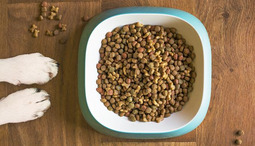Vegetarians look away now! We are discussing the carnivore diet.
Unless you’ve been living under a rock for the past couple of years, you’ll have heard about the carnivore diet.
The carnivore diet is the latest extreme diet to have taken the internet by storm. It’s a controversial diet for obvious reasons, but it is not without it’s high profile exponents or a variety of health claims.
What Is The Carnivore Diet?
The carnivore diet is an extreme zero carbohydrate diet that includes only animal protein such as beef, port, chicken, turkey and fish along with some limited amounts of animal products such as butter and eggs.
Additionally, rendered fats like lard are encouraged, as are organ meats and rich soups, or broths made from bones and marrow.
Unlike low carbohydrate diets like paleo or the ketogenic diet, the carnivore diet does not allow for any carbohydrates at all.
There is no formal definition for the carnivore diet, and so interpretations will vary somewhat.
However, one thing is agreed, and that is all plant products are to be avoided.
This includes drinks such as tea and even herbs and spices used for flavoring such as basil, oregano or cumin.
What Do Followers Claim For The Diet?
Followers of the carnivore diet make many claims for its benefits.
Weight loss is the main advantage that is touted for the diet, and it does seem from reports online that this weight loss can be significant, especially in the early stages.
The main reason for this is because extreme carbohydrate restriction will force the body to make up its energy requirements by using stored body fat.
Other claims are quite surprising.
Mikhaila Peterson, the daughter of high profile psychologist and best selling author Jordan Peterson, claims the diet has cured her of a variety of diseases, including rheumatoid arthritis and depression.
Peterson is not alone in making such claims and the healing power of meat has led many to describe the diet as life changing.
The basis for these claims is that a diet devoid of plant products is one that is anti-inflammatory, and more in keeping with our ancestral dietary retirements.
Once these inflammatory foods are eliminated, the gut can begin to heal itself, proponents say.
The problems associated with modern diets have now reached mainstream acceptance – we are all aware of the problems introduced by sugar and excess carbohydrate intake. Even gluten has come under scrutiny for its inflammatory role in the gut in those who do not display gluten intolerance.
However, what is new is a belief that plants matter itself is inflammatory. Believers point to levels of ‘phytates’ which are chemicals found in legumes, bran, nuts and seeds, as well as a wide variety of greens. Phytates in high levels can act as an irritant and even lead to some mineral deficiencies.
Possible Concerns
Like any extreme diet, the carnivore diet is not without its concerns.
Principle among these is cholesterol. Cholesterol is the transport mechanism by which fats are moved through the bloodstream.
The carnivore diet increases the amount of dietary cholesterol and there are obvious concerns for heart health that cannot go unchallenged.
In addition, there are concerns that such a restrictive diet could lead to vitamin deficiencies and even serious harm.
Carnivore diet followers say that these concerns are overstated. Alternative theories to cholesterol are already reaching mainstream exposure, and there are claims that vitamin and mineral requirements change greatly when the diet is restricted to meat alone.
Inuit Diet
The carnivore diet may not be a new fad. Native Inuit people have lived on a diet restricted to almost 100% meat for generations and their health and well-being both before and after exposure to western diets is well documented.
But like any diet, you should consult with your doctor before making such a drastic lifestyle change.









